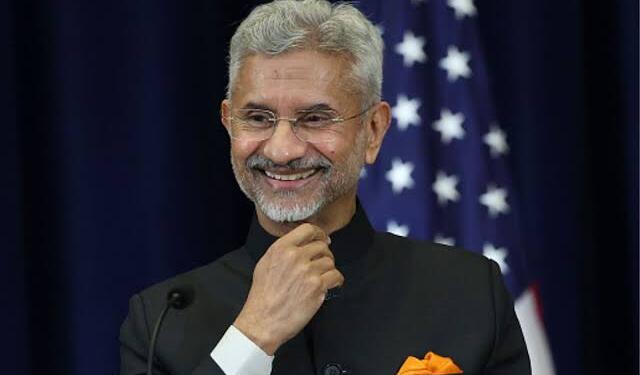External Affairs Minister S. Jaishankar strongly took India’s case for democracy at the Munich Security Conference 2025, countering the Western narrative arguing for the decline of democracy worldwide. Speaking at a panel discussion titled “Live to Vote Another Day: Fortifying Democratic Resilience,” he set forth India’s democratic success in contrast with global democracy’s pessimism.
Jaishankar was joined by Norway’s Prime Minister Jonas Gahr Store, US Senator Elissa Slotkin, and Warsaw Mayor Rafal Trzaskowski on the panel. Addressing the topic, he remarked that he was perhaps the most optimistic voice in what seemed like a largely pessimistic discussion.
To illustrate his point, he raised his ink-marked index finger and said, “This is the mark of a person who has just voted.” He explained that elections had recently concluded in his state, and just last year, India held its national elections. He emphasized that around two-thirds of India’s eligible voters—approximately 700 million people out of 900 million—participated in the elections, and the results were counted in a single day.
VIDEO | Here’s what External Affairs Minister S Jaishankar (@DrSJaishankar) said answering a question about whether democracy is in trouble worldwide.
“The mark on my index finger is a mark of a person who just voted. We just had an election in my state. Last year, we had a… pic.twitter.com/OCXHfJkMJ4
— Press Trust of India (@PTI_News) February 15, 2025
‘For Us, Democracy is Actually Delivered’
Jaishankar rejected the idea that democracy is struggling on a global scale, saying, “The assumption that democracy is in trouble worldwide—I have to differ with it. Right now, we are voting well, living well, and remaining optimistic about the direction of our democracy.”
He noted that India’s elections have a high degree of credibility, with no disputes over results once they are announced. Moreover, voter participation has increased over time, with 20% more people casting their votes today than in earlier decades.
Jaishankar also responded to US Senator Elissa Slotkin’s remark that ‘democracy doesn’t put food on the table.’ He strongly disagreed, stating, “In my part of the world, it does. Because we are democratic, we provide food and nutrition support to 800 million people. For them, democracy is directly linked to their health and well-being.”
Democracy’s Challenges and the Global South
Jaishankar acknowledged that democracy functions differently across regions, adding, “Some parts of the world struggle with democracy, while others thrive. We must have honest conversations about why that is.” He attributed some of the difficulties faced by democracies to the global economic model followed over the past 25-30 years.
He also pointed out how, after independence, India chose a democratic model aligned with its consultative and pluralistic society. While the West once viewed democracy as an exclusively Western characteristic, many nations in the Global South today relate more to India’s democratic experience than to Western models.
Jaishankar stressed that India is firm in its commitment to democracy in spite of many challenges, and he urged gifted leadership in the West to recognize and embrace other successful models of democracy not in their own region if democracy is to succeed globally.
Following the panel discussion, Jaishankar commented on X (formerly Twitter), explaining that at MSC 2025 he had, among other issues like foreign interference in democracies, opened up to deflect the then-prevailing mood of political pessimism.
The Munich Security Conference 2025 started in Munich, Germany, on 14 February 2025 and goes on till 16 February. This has been an important forum for high-powered discussions on global foreign policies, security challenges, and democracy’s future.
























